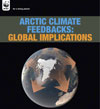
“My subject is hope of the millennial kind.” So writes David Orr in his new book Down to the Wire: Confronting Climate Collapse. The challenges ahead are more difficult than the public is led to believe and than most leadership apparently understands. There is a long emergency for us to get through -– E.O.Wilson’s “bottleneck” –- and the hope that he discerns is at a farther horizon.
Which doesn’t mean that action can be delayed. Orr, professor of environmental studies and politics at Oberlin College, is himself a strong proponent of action. He was part of the team who over a period of two years prepared recommendations for climate change action in the first 100 days of President Obama’s administration in a plan describing over 300 actions the president could take and including a legal analysis of the executive authority at his disposal. He describes this book as a companion of sorts to that project.
However, much in the book focuses on the longer haul and includes the wider environmental degradation of which climate change is the most important part. One striking chapter describes his shocked viewing of the devastation wrought by coal-mining in the Appalachian mountains. It’s a sickening picture: “…mountaintop removal is destroying one of the most diverse and beautiful ecosystems in the world, rendering it uninhabitable forever.” It’s not surprising that this chapter includes a plug for what Spanish philosopher Unamuno called “the tragic sense of life”, a sober philosophy which among other things is free from the delusion that humans should be about “the effecting of all things possible” or that science should “put nature on the rack and torture secrets out of her”.
Sustainability will need to be built on something deeper than the application of more technology and smarter economics. They may only compound our tribulations. He considers that the effort to secure a decent human future will need awareness of the connections that bind us to each other, to all life, and to all life to come. What is given must be passed on. Every culture that approaches sustainability grasps the truth that nothing can be held or possessed. Substantial sections of the book explore such ideas thoughtfully and in highly readable prose. Philosophy, ethics, and to some extent religion underlie the diagnoses and prescriptions proposed.
What constitutes the long emergency? Orr’s book focuses on the U.S. but has high relevance for the rest of us. He names five converging challenges. First, climate change driven by the combustion of fossil fuels and land management changes. Second, nasty surprises caused by the breakdown of ecosystems and the ecological services they provide. Third, peak oil and the failure to move to energy efficiency and renewable energy sources. Fourth, exorbitant military expenditure which buys little safety or security. Fifth, the necessity to reform an economy built on excess, debt, and dishonest bookkeeping. He notes that to these can be added continued population growth, emerging diseases amplified by warming temperatures, and the arcane complexities of global economic and financial interdependence.
The implications for the U.S. are becoming clear. The top priority is to reduce U.S. CO2 emissions by 90% by 2050 and lead the global effort to hold the temperature rise to no more than 2 degrees. Energy efficiency measures and a strong move to renewable sources are the pathway to this. A second implication is that governments must learn to handle an economy in which quantitative growth will slow and eventually stop. Orr frequently refers to the work of ecological economists such as Herman Daly. A limited growth economy will require more attention to the challenge of distributing wealth fairly. He points to two further implications which may startle American readers: preparing measures to relocate internally displaced people as the effects of warming and sea level rise begin to bite; and preparing, even in the US “to deal with the ancient scourge of famine.” All these measures point to the need for a coalition to change US politics, economy, and manner of living to fit bio-physical realities.
It is not surprising that Orr advocates transformational leadership. That is, leadership which will prepare the public to understand the scale and duration of climate destabilisation and to grasp that it is a challenge to the US system of politics and governance; leadership which will help people understand the connections between energy choices and ecological consequences; leadership which will be honest in the vision of the future and lay the foundation for authentic hope. His indictment of the leadership of the Bush-Cheney administration, which did none of those things, is succinct, comprehensive and damning.
Orr doesn’t buy the idea that the public can handle only happy news. The public should be treated as intelligent adults who are capable of understanding the truth and acting creatively and courageously in the face of necessity. Wise transformational leadership will summon the people with all of their flaws to a level of extraordinary achievement appropriate to an extraordinarily dangerous time. Lincoln, Roosevelt and Churchill figure in his discussions.
The grounds for hope are not strong right now but he’s prepared to discern them a century or more ahead. The immediate steps are clear: preserve soil and forests, save species, use less, deploy solar technologies; on the political side, “throw the rascals out”, demand accountability, elect leaders with courage and intelligence to lead in the right direction. Might we still avert catastrophe? In a sea of wishful thinking, evasion and half measures it’s not easy to be confident. In an extended passage he discusses what in us might enhance our long-term prospects. After looking at our limitations, at the risk of sounding naïve he lists examples of not uncommon traits of character, like sociability and kindness, which will serve us, as also will our affinity for life – what E.O. Wilson calls “biophilia”. If public awareness of the crisis really is dawning, as he hopes, much will depend on how we make four fundamental changes: the improvement of societal resilience by reshaping the way we provision ourselves with food, energy, water, and economic support; a shift in education methods so that learning is relative to the biosphere and ecological awareness; the recalibration of governance to the way the world works as a physical system; finally, and perhaps oddly to some readers, a revolution in kindness and generosity of spirit that allows us to gracefully forgive and be forgiven. It is worth noting here that Orr is very committed to the Gandhian principle of non-violence.
Although Orr has many excursions into reflections on what makes us human and how we fit into the web of life there is no mistaking the urgency of his practical advocacy. He knows the times are critical. Throughout the book he displays full and detailed awareness of the danger in which we already stand. But climate change, he says, is not so much a problem to be fixed but rather a steadily worsening condition with which we must contend for a long time to come. Improved technology may buy us time, but what we most need is a more durable and decent civilisation.
Like this:
Like Loading...
 At least some Americans and Chinese are getting together to work on climate change. A team of researchers from Harvard University and Beijing’s Tsinghua University have been conducting a serious investigation into China’s wind power potential. Their work was the cover story for the Sep 11 issue of Science (sub required) and is reported in  the Harvard Gazette.  MIT’s Technology Review also carries a useful report. Â
At least some Americans and Chinese are getting together to work on climate change. A team of researchers from Harvard University and Beijing’s Tsinghua University have been conducting a serious investigation into China’s wind power potential. Their work was the cover story for the Sep 11 issue of Science (sub required) and is reported in  the Harvard Gazette.  MIT’s Technology Review also carries a useful report.  


 Sea level will rise by more than a metre by 2100 according to the authors of the third chapter in the World Wide Fund for Nature’s new Arctic report,
Sea level will rise by more than a metre by 2100 according to the authors of the third chapter in the World Wide Fund for Nature’s new Arctic report,